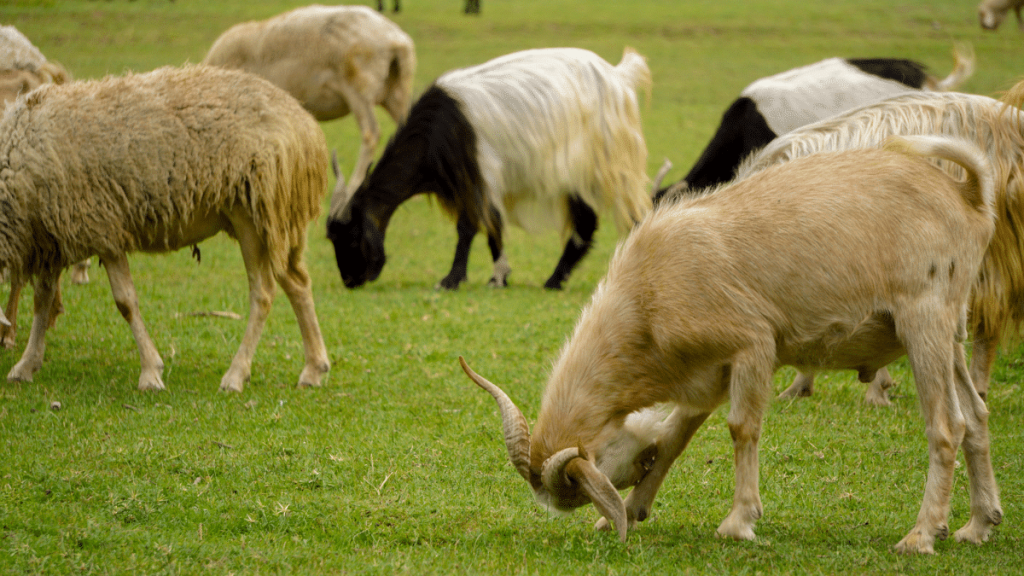
Qurbani (Udhiyah) is among the worship ordained by Allah (swt) upon all Muslims all over the world through the festival of sacrifice or the Eid al-Adha. It’s more than a religious duty; it’s a powerful symbol of faith and devotion, and it can also represent compassion. Based on the tradition of Prophet Ibrahim (Abraham), Qurbani embodies the essence of submission to Allah’s will. It upholds ideals such as sacrifice, charity, and community support. Here, we will explore what Qurbani is in Islam and its significance.
What is Qurbani in Islam?
The tradition of Qurbani traces its origin to the time of the Prophet Ibrahim. In Islamic tradition, Ibrahim dreamt that Allah asked him to sacrifice his only son, Ismail. Ibrahim did sway and steadied himself to comply without reservation and with full trust in Allah. In the instant when the knife was about to slay Ismail, Allah substituted a ram for his son, and thus Ibrahim was rewarded for his spirit of submission and obedience.
It is this moment of faith that Muslims recall and commemorate annually during Eid al-Adha. This is an act of submitting our ego, our worldly attachments, and proving that Allah’s preference is above all.
When is Qurbani Performed?
Qurbani is offered during Eid al-Adha on the 10th, arguably the most significant day of Dhul Hijjah, the Islamic lunar month. Sacrifice must be performed on the 10th, 11th , or 12th of Wilayah. Then, after the Eid prayer, it must be done. If you do it before Eid prayer, it’s not Qurbani.
These three days are called the “days of slaughter,” and are a commemorative time of celebration, meditation and giving among Muslims around the world.
Who is Required to Perform Qurbani?
A Qurbani is required of every Muslim adult who has the means to afford it. They must have reached the Nisâb on the day the Haram months are off, which is 7.5 tolas of gold or 52.5 tolas of silver above their basic needs and expenses.
Some scholars also consider Qurbani, which has to be done wajib, and some are of the view that it is a highly recommended act, Sunnah Mu’akkadah. But it is a good act, whether categorical. It is only obligatory upon children and those who are unable to perform Qurbani; they need not do so.
What Animals Can You Sacrifice for Qurbani?
There are specific types of animals that can be slaughtered for Qurbani according to Islam. These include:
- Goats – minimum age 1 year
- Sheep – at least one year old (although some opinions permit 6 months if the animal is healthy and appears to be one year old)
- Cattle (all bovines, male and female) -not less than 24 months old
- Camels – minimum age 5 years
The beast must be sound and without blemish. Qurbani is not permitted on blind, sick, or atrophied animals. Slaughter should be done in a humane and caring way to ensure that the dignity of the animal is preserved—one goat or sheep per person for Qurbani. A bigger animal, such as a cow or camel, can feed up to seven people.
The Process of Qurbani
The act of Qurbani is performed with an intention (niyyah). The zabiha itself is then laid on its side, and the individual completing the zabiha cries, “Bismillah, Allahu Akbar” (In the name of Allah, Allah is the Greatest). It is an important part of the ritual, as it recognises that only with the permission of Allah is the life of the animal taken.
The butchering must be quick with a swift blade to minimize the animal’s suffering. Animals should also not be slaughtered in the presence of one another so they do not feel distress, they add.
When the animal has been slaughtered, the meat is cut into three parts:
- One-third for the family of the one performing Qurbani
- A third for friends and family
- A third of people with low incomes and the needy
This split makes it possible for the gift of Qurbani to be given to many people in a community, so that everyone, particularly those experiencing poverty, can be part of the celebration.
Why Qurbani Matters?
Qurbani is not just a tradition, he notes; it’s a spiritual journey. It reinforces some of the most profound values in Islam:
Submission to Allah
At its core, Qurbani is about submission. Just as Ibrahim sacrificed what he held most dear, Muslims, too, are reminded to put their faith in Allah above all else.
Compassion and Charity
By giving away the meat to the less fortunate, Qurbani inculcates the lesson of charity. It is a period where social barriers are broken and everyone, rich or poor, can join in the happiness of Eid.
Unity and Brotherhood
The social element of Qurbani helps form stronger relationships between family, friends, and the global Muslim Ummah. It’s a moment for communion, tending, and rejoicing.
Modern-Day Qurbani
Now, thanks to technology and our global connection, Qurbani is easier than ever. Nowadays, a growing number of Muslims apply for online Qurbani and sacrifice halal animals for the needy through well-known Islamic organizations. These organizations will make the sacrifice on behalf of donors and deliver the meat to those in need all over the world. It includes war-torn or drought-ridden areas.
FAQs
Can women perform Qurbani?
Yes, Qurbani is not just for males. A woman who meets the criteria and can afford it is obliged to do the same.
Is it permissible to perform Qurbani in another country?
Yes, Qurbani can be performed in a country other than your own , or where it is needed the most. It is facilitated through charities that provide international Qurbani services.
Some people say ‘Bismillah Allahu Akbar’ when slaughtering an animal. What is the significance?
It says, “This is someone’s life they are taking by the will of Allah”. It makes the act sacred and guarantees that it’s performed for the right reasons, rather than out of cruelty or neglect.
Can we give away all the meat?
Yes, you can, although it’s customary to divide the meat into three parts, since people with low incomes eat from it as well. If you want to maximize the number of people who benefit from your sacrifice, you can give all the meat to them.
Is it permissible to store or freeze Qurbani meat?
The meat can be saved or frozen for a later date, particularly if it helps cut down on waste and allows it to benefit others over a longer period of time.
Conclusion
Here is the answer to what Qurbani is in Islam. Qurbani is one of the most important traditions in Islam. It combines belief, sacrifice, and kindness into one act of worship. Whether you accomplish it locally, through international charities, or online platforms, the spirit remains the same. You are following the tradition of the Prophet Ibrahim and fulfilling an important act of worship.
In a world where inequality and hardship persist, Qurbani serves as a poignant reminder. It is an act of sharing, caring, and obeying Allah’s commands that makes a difference in individual lives and the whole community.
